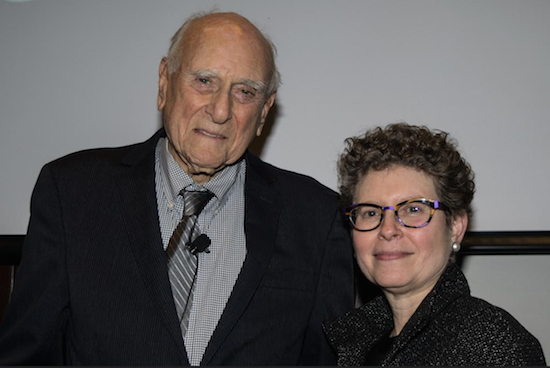At BHS event, Judge Jack Weinstein recalls growing up in old Brooklyn

A lot has been written and said about Judge Jack B. Weinstein’s prolific legal career, but during a packed event at the Brooklyn Historical Society (BHS) on Tuesday night the judge took a look back at his life before the law — his days growing up in Brooklyn, his years as an officer in the Navy and the ways his youth influenced his career.
Judge Weinstein, of the Federal District Court for the Eastern District of New York, sat down with Michael Waldman, president of the Brennan Center for Justice at NYU School of Law, to discuss his life. To prepare for the event, Weinstein drove around all the different parts of the borough that were important to him, many of which he had not visited in over 40 years.

Brooklyn Boro
View MoreNew York City’s most populous borough, Brooklyn, is home to nearly 2.6 million residents. If Brooklyn were an independent city it would be the fourth largest city in the United States. While Brooklyn has become the epitome of ‘cool and hip’ in recent years, for those that were born here, raised families here and improved communities over the years, Brooklyn has never been ‘uncool’.